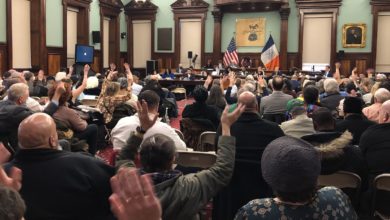The largest strike of U.S. mental health workers took place this past week in California when Kaiser Permanente’s 2,600 mental health clinicians, as well as 700 Kaiser optical workers and health care professionals, went on strike. This labor dispute is not about wage increases or better benefits for workers. Rather, thousands of social workers, psychologists and therapists walked off the job to demand Kaiser hire more staff to handle the unprecedented number of mental health patients who are not receiving timely or effective care. In addition, Kaiser is breaking numerous federal and state laws with regard to patient care, which the workers deem unethical as well as illegal.
There were week-long actions of 65 picket lines across 35 cities, because negotiations between Kaiser and the National Union of Health Workers, which represents the Kaiser mental health workers, failed to come to an agreement. After four bargaining sessions last week, Kaiser broke off discussions and refused to address chronic issues of under-staffing.
The under-staffing dispute between Kaiser and their mental health workers began long before the addition of 350,000 new patients who enrolled with Kaiser as a part of the Affordable Care Act.
In November 2011, the NUHW filed a complaint with California’s Department of Managed Health Care for violating numerous mental health laws in California, including patient wait times for mental health appointments of four to six weeks, which far exceeded legal limits. The complaint also stated that Kaiser filed a parallel set of paper records that concealed patients’ lengthy wait times, as well as violating the California Mental Health Parity Act, which requires HMOs to provide equal care to psychiatric and primary health services.
In March 2013, the DMHC fined Kaiser $4 million for violating California’s mental health laws. The fine is the second largest in the agency’s history. Kaiser filed an appeal against the ruling until it was declared that the appeal trial would be made public. Immediately, Kaiser agreed to pay the fine in September 2014.
Retaliation against whistle blowers
In addition, Kaiser’s patients have filed five class-action lawsuits against the HMO, citing numerous suicides by Kaiser patients who had not been provided timely and appropriate mental health care. Furthermore, Kaiser has been retaliating against whistle blower mental health clinicians who have cooperated with government investigators. The NUHW has filed two whistle blower retaliation complaints with the California attorney general.
Out on the picket lines in San Francisco this week was Dr. Andris Skuja, a psychologist who has worked at Kaiser for 34 years. When asked why he was on strike this week, Dr. Skuja said: “I’m here because I care about patients and that’s my life’s calling and my work and my training. And we are not able to practice and provide the kind of care that these people, who come to us for help, deserve, need and for what they pay for.” Dr. Skuja went on to say about Kaiser, “It’s appalling that an organization would lose its moral compass.”
Also demonstrating at Kaiser San Francisco was Clement Papazian, an Oakland clinical social worker and member of the bargaining committee. Papazian said: “We’ve been at this for almost four and a half years. There are not enough psychologists, social workers and marriage and family therapists to see the patients that they are signing up, that they had BEFORE the Affordable Care Act. Now, in the aftermath of the Affordable Care Act, it’s even more patients, and [Kaiser is] simply not responding to that crisis.” Papazian went on to say: “The system is broken at Kaiser. … It appears that the lobbyists, in order to make manifest an Affordable Care Act, created an avenue for hospital administrators to get wealthy. What we are seeing is that all of those resources are going into the pockets of the executives, and they are really not using it to increase services to the public.”
Revenue over patient care
Papazian, who is also quoted on the NUHW website, wrote: “It’s disappointing, disheartening, and incomprehensible. Kaiser’s leadership has made it clear in no uncertain terms that revenue is more important to them than patient care. They’re bringing in billions in profit every year and have stockpiled a $32 billion reserve, yet they refuse to put any of that money toward complying with the law in their psychiatry department and providing the care their members pay for with their monthly premiums.”
Slogans on the Kaiser picket lines this week included: “Patients before profits!”; “Care delayed is care denied!”; “Mental health not corporate wealth!”; and “Stop the suicides!”
Health care is a fundamental human right that must be provided to every person in a timely effective manner. The solution is clear and simple. It has been shown time and again that the vast majority of working people support and desperately need free and quality health care on demand. A centrally planned single-payer health care system that eliminates the parasitic insurance companies and HMOs can be achieved with the demand and mobilization of millions of people in the streets. Let’s organize and demand our human rights.
On the birthday of the civil rights leader Dr. Martin Luther King, let us remember his words of truth: “Of all the forms of inequality, injustice in health care is the most shocking and inhumane.”
Dr. Chase is a member of the Party for Socialism and Liberation and a psychologist who works in San Francisco and specializes in addictions and behavioral health.






